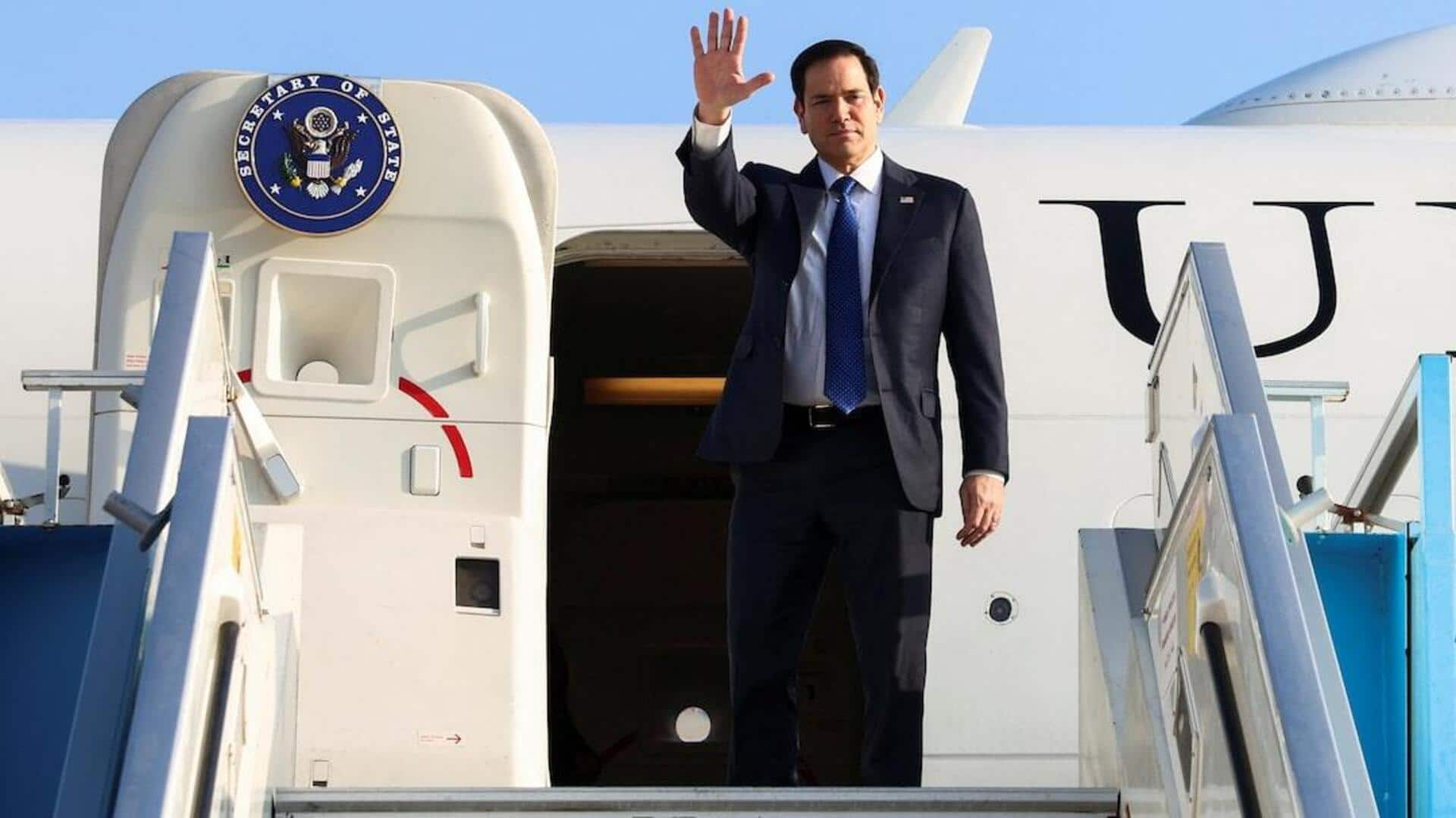
Trump's team heads to Saudi for Russia-Ukraine talks without Ukraine
What's the story
A high-level United States delegation, led by Secretary of State Marco Rubio, National Security Adviser Mike Waltz, and Special Envoy to the Middle East Steve Witkoff, is on its way to Saudi Arabia.
The visit is aimed at kickstarting negotiations to end the ongoing conflict between Russia and Ukraine.
Significantly, the talks will be held without direct involvement from Ukraine, contrary to earlier statements that claimed Ukrainian participation.
Diplomatic discussions
US officials to engage in talks with Russia
Witkoff confirmed his travel plans and the intention to hold direct talks with Russian counterparts.
He insisted that "Ukraine is part of the talks," even though no Ukrainian officials are expected in Saudi Arabia.
This comes after a phone call between US President Donald Trump and Russian President Vladimir Putin, where they agreed to start negotiations.
Trump announced on Truth Social that both nations would work closely together, including potential visits to each other's countries.
Diplomatic concerns
Ukraine expresses concerns over exclusion from talks
Ukrainian President Volodymyr Zelenskyy has expressed concerns over Ukraine's absence from these talks. At the Munich Security Conference, he said, "Ukraine will never accept deals made behind our backs."
Ukrainian officials are apprehensive that any deal may not provide sufficient security guarantees for their country.
Separately, Ukrainian Economy Minister Yulia Svyrydenko confirmed a separate Ukrainian delegation's presence in Saudi Arabia for economic talks but didn't directly link the visit to the US-Russia talks.
Negotiation dynamics
European nations excluded from negotiation table
US Special Envoy Keith Kellogg said that while Ukraine would be involved in broader talks, European nations wouldn't get a seat at the negotiation table.
Kellogg indicated that negotiations will largely include "two protagonists" Russia and Ukraine, with the US serving as a middleman.
He later clarified that not participating in direct negotiations does not mean that a country's interests are being ignored.